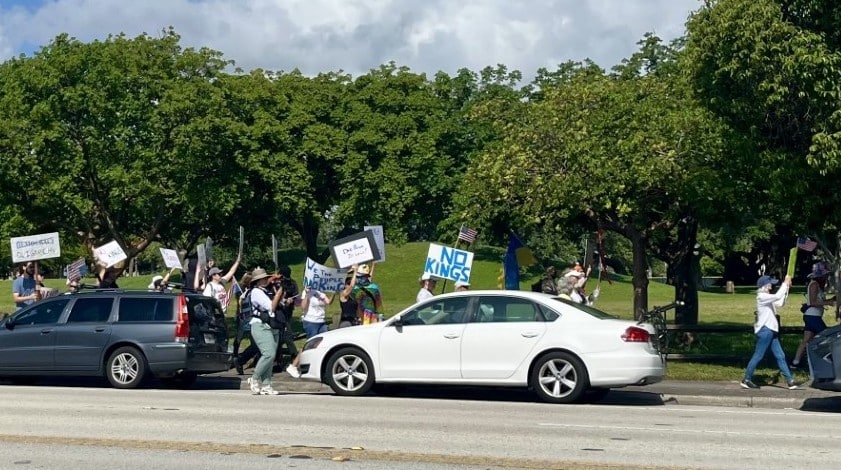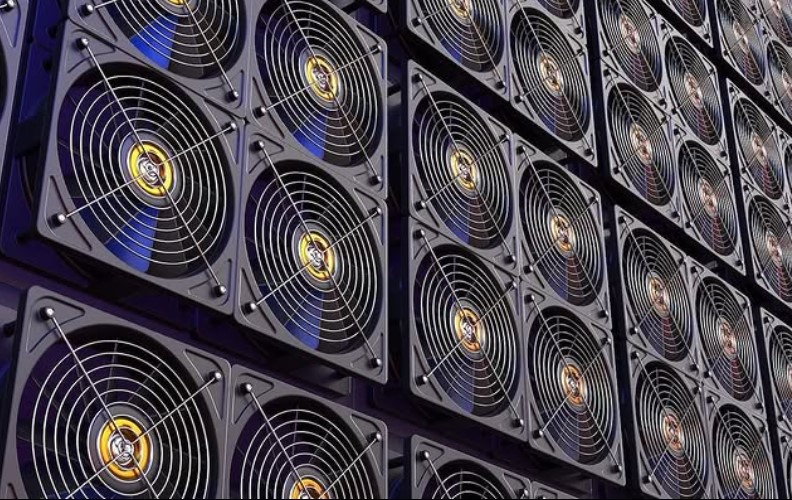Greenland’s mining minister has warned Donald Trump’s proposal to buy the Arctic territory could be “devastating” for its minerals pitch to international investors.
Naaja Nathanielsen told the Financial Times the US president-elect’s rhetoric, and in particular his refusal to rule out using force to take over the island, risked damaging its image as a stable, resource-rich democracy.
“When he talked about not excluding military use in Greenland I was quite worried about how investors would perceive Greenland, maybe as a democracy about to be unstable or overrun,” Nathanielsen said. “That would be devastating for our mineral sector because investors do not like instability.”
Some mining companies have asked the island’s government for a guarantee that their licences would remain valid “if Greenland is occupied by the US”, said a person familiar with the matter.
“Companies are looking for a reason not to do an investment. This can be in the category of political instability.”
However, Nathanielsen said she believed that was not the correct way to interpret the incoming US president’s words.
“If you cut through the rhetoric, what I hear Trump saying is he thinks the natural resources in Greenland should be put to use. And we totally agree with him on this,” she said.
Nathanielsen, whose ministerial portfolio includes business, trade, justice and gender equality, said mining companies operating in Greenland had a similar view, and were more confused than actually concerned.
“Everybody’s been waiting with bated breath to see: what is the actual message in there? . . . Where does everything land?” Nathanielsen said.
Greenland has pitched itself as a western mining alternative for many rare earths and minerals — a sector that China dominates — drawing the attention of US officials keen to keep out Beijing and Moscow.
Nathanielsen said western capitals increasingly recognise the need to diversify their supply chains and ensure they are not dependent on China or Russia for the minerals used in defence production.
But this has not translated into the sort of funding and investment mining companies need to get projects off the ground in a location as challenging as Greenland, Nathanielsen said, describing it as a geopolitical mistake.
“I think everybody’s been sleeping. And needs to wake up,” she said.
The mining industry is also central to Greenland’s increasing demand for independence. Along with tourism, the sector is seen as the best way of boosting the island’s economy allowing it to no longer need the DKr4bn ($550mn) annual grant from Denmark, which controls the territory.
Though bristling at Trump’s tone, many Greenlanders have seen an upside to the incoming president’s interest in their homeland, because it has raised the issue of the territory’s independence from Denmark to the fore. But Greenland still has a lot of work to do on its economy, Nathanielsen said.
Though many companies hold licences to mine a vast array of resources on the Arctic territory, no large-scale mine is in operation, and Greenlandic officials and mining bosses acknowledge the lack of progress as disappointing.
Greenland’s remoteness, its lack of infrastructure and short season for mining have stopped many projects from coming to fruition.
Nathanielsen said Trump’s initial interest in Greenland in 2019 sparked a flurry of co-operation between the Arctic territory and the US state department in the mining sector, and she hoped his latest comments were an indication this work would expand.
“To get these minerals from Greenland, it’s not enough just to say: ‘we want this’. You also need to help companies in those early stages where it’s very, very vital they get a lot of funding,” she said.
Anglo American, the London-listed mining company, is the biggest company in Greenland with very early-stage exploration licences, which are due to run out this year but are renewable.
Other companies have found promising supplies of copper, oil, and minerals such as gallium but have been unable to gain financial backing despite, in some cases, decades of trying.
The government in Nuuk stopped the controversial Kvanefjeld project in southern Greenland — where a Chinese company is a minority shareholder — because the ground contained not just rare earths but also uranium.
Alongside regulatory challenges are logistical obstacles. Greenland has no roads connecting its cities, let alone its mineral deposits. “You also have to build supporting infrastructure, as well as the actual mine,” said Svend Hardenberg of Energy Transition Minerals, the Kvanefjeld project’s developer. “Also there’s a lack of skilled workers, since it’s an industry not yet matured.”
“The US and Europe need access to rare earth elements, since China has a de facto monopoly,” Hardenberg said.
Roderick McIllree, executive director of 80 Mile, a UK-listed miner with three projects in Greenland, said he hoped Trump could unblock the situation.
He said: “People think Greenland is too hard, too hard. Then Donald Trump turns up and says Greenland is maybe the most valuable piece of real estate in the world, and suddenly everyone wants to invest.”
“It’s a paradigm shift in sentiment. Greenland is now on the agenda. It’s a land of incredible opportunity.”
Credit: Source link











